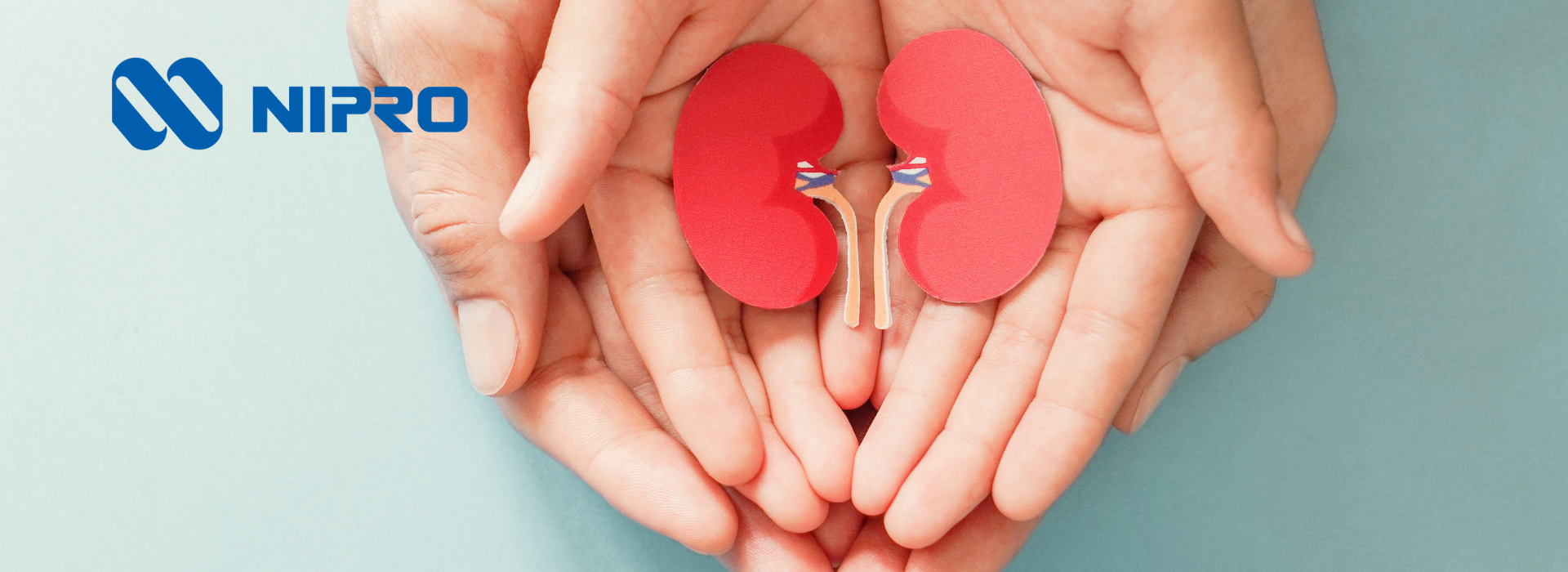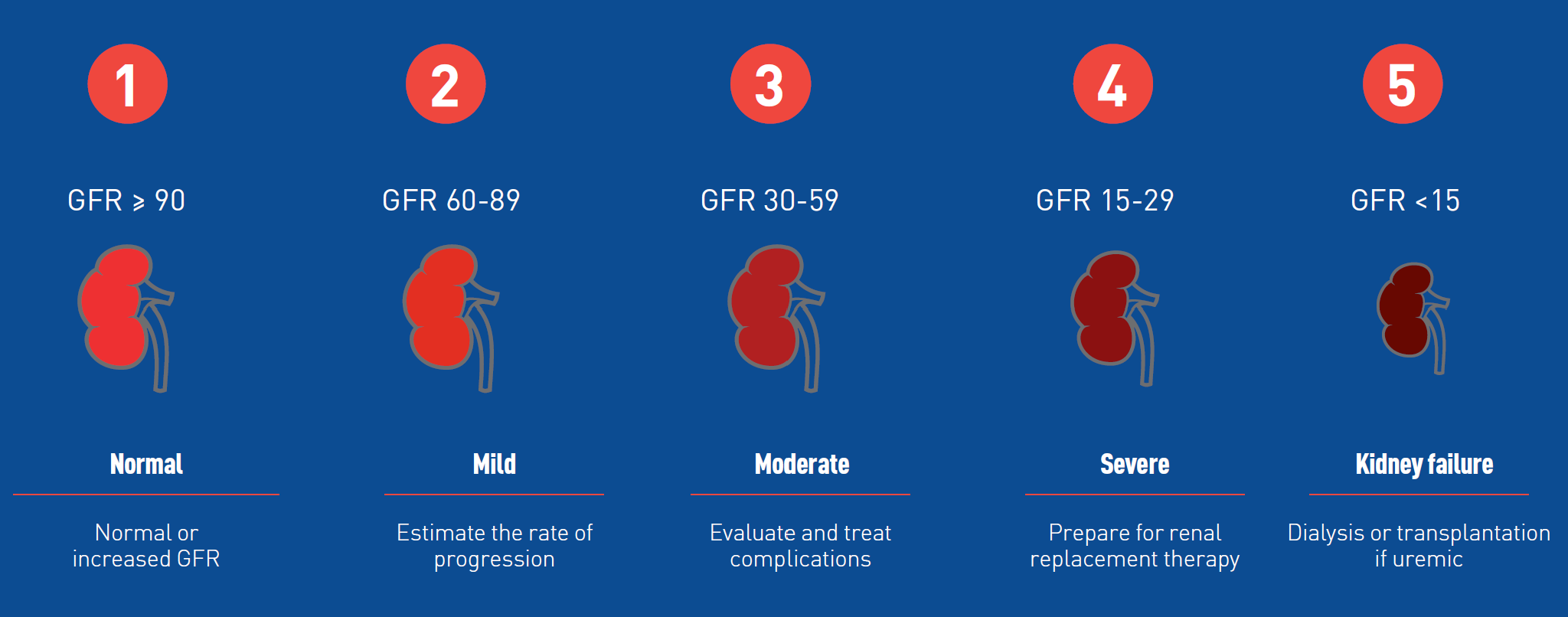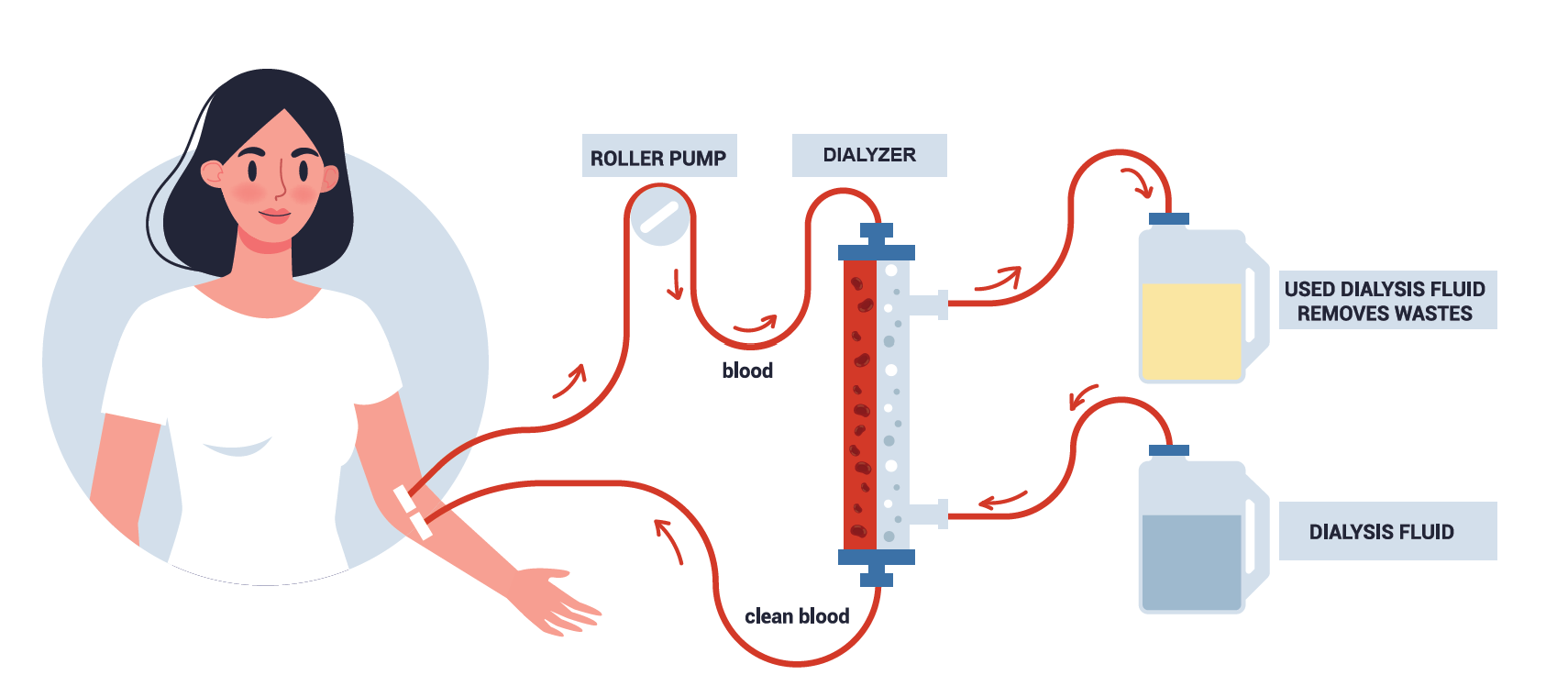PRIVACY POLICY
This Privacy Policy discloses the privacy practices for the Nipro Medical Corporation website and various related services (together referred to as the “Site”). Nipro Medical Corporation, the provider of the Site, (referred to as “us” or “we”), is committed to protecting your privacy online. Please read the information below to learn the following regarding your use of this Site:
1. What information do we collect from you?
2. Where do we collect information from you and how do we use it?
3. With whom do we share your information?
4. How can you update, correct or delete your Personally Identifiable Information?
5. What are your choices regarding collection, use and distribution of your information?
6. What security precautions are in place to protect against the loss, misuse or alteration of your information?
7. Do we use “cookies”?
8. What should you know about privacy policies and data collection at any third party sites accessible from our Site?
9. What else should you know about your privacy online?
You acknowledge that this Privacy Policy is part of our Site Terms of Use, and by accessing or using our Site, you agree to be bound by all of its terms and conditions. If you do not agree to these terms, please do not access or use this Site.
We reserve the right to change this Privacy Policy at any time. Such changes, modifications, additions or deletions shall be effective immediately upon notice thereof, which may be given by means including, but not limited to posting the revised Policy on this page. You acknowledge and agree that it is your responsibility to review this Site and this Policy periodically and to be aware of any modifications. Your continued use of the Site after such modifications will constitute your: (a) acknowledgment of the modified Policy; and (b) agreement to abide and be bound by the modified Policy.
1. What information do we collect from you?
We collect two types of information about our users: Personally Identifiable Information and Non-Personally Identifiable Information.
Personally Identifiable Information: This is information that lets us know the specifics of who you are. When you engage in certain activities on this Site, such as sending us emails and attachments to our email addresses referenced on the Site, in areas such as the Contact Us, Careers and Products sections of the Site, including but not necessarily limited to, info@nipromed.com and careers@nipromed.com, submitting comments, information or resumes, providing us with feedback, requesting, retrieving, downloading documents and/or training materials, registering for membership, ordering a product or service, completing surveys, or other activities as now or in the future may be available on the Site, we may ask you to provide certain information about yourself by filling out an online form and you may provide other Personally Identifiable Information in the emails and attachments you may send us. It is completely optional for you to engage in these activities. If you elect to engage in these activities, however, we may ask that you provide us personal information, such as your first and last name, mailing address (including zip code), email address, profession information, employer, job title and department, telephone and facsimile numbers, and other personal identifying information. We may at some point in time provide for the ordering of products or services through this Site and in such case when ordering products or services you may be asked to provide a credit card number. Depending upon the activity, some of the information we ask you to provide is identified as mandatory and some as voluntary. If you do not provide the mandatory data with respect to a particular activity, you may not be able to engage in that activity. We may record calls to or from our sales/customer service representatives for purposes of accuracy, performance reviews, training, and general quality assurance.
Non-Personally Identifiable Information: This refers to information that does not by itself identify a specific individual. We may gather certain information about you based upon where you visit on our Site in several ways. This information is compiled and analyzed on both a personal and an aggregated basis. This information may include the Uniform Resource Locator (“URL”) from the website that you just came from, which URL you go to next, what browser you are using, and your Internet Protocol (“IP”) address. An URL is the global address of documents and other resources on the World Wide Web. An IP address is an identifier for a computer or device on a Transmission Control Protocol/Internet Protocol (“TCP/IP”) network, such as the World Wide Web. Networks like the Web use the TCP/IP protocol to route information based on the IP address of the destination. In other words, an IP address is a number that is automatically assigned to your computer whenever you are surfing the web, allowing web servers to locate and identify your computer. Computers require IP addresses in order for users to communicate on the Internet.
2. Where do we collect information from you and how do we use it?
We do not collect any Personally Identifiable Information about you unless you voluntarily provide it to us. You provide certain Personally Identifiable Information to us when you:
(a) register for our services and register your e-mail address with us;
(b) send e-mail messages and attachments to emails such as resumes, submit forms, including "Contact Forms" or transmit other information by email, telephone or letter; or
(c) in the event at some point in time we sell products or services through this Site, submit your credit card or other payment information when ordering and purchasing products and services on our Site.
We may also collect information from you at other points on our Site that state that such information is being collected.
In addition, we may also collect, and, if applicable, a third party content server for us may collect, certain Non-Personally Identifiable Information. This information is ultimately stored in the form of store categories, and, in some cases, specific URLs. We may use your IP address to diagnose problems with our servers, software, to administer our Site and to gather demographic information.
We will primarily use your Personally Identifiable Information to provide our services to you, as required by our agreements with you. We may also use Personally Identifiable Information to enhance the operation of our Site, fill orders, improve our marketing and promotional efforts, statistically analyze Site use, improve our product and service offerings, market and sell training classes, customize our Site’s content, layout, services, aid in the provision of our various products and services, aid in the provision of our customer service, accounting, billing, collections, and the marketing of other products services. We may use Personally Identifiable Information to deliver information to you and to contact you regarding administrative notices. Resumes and emails submitted to us under our Careers tab are used for hiring and human resource consideration purposes. We may also use Personally Identifiable Information to resolve disputes, troubleshoot problems and enforce our agreements with you, including our Site Terms of Use, Sales Terms and Conditions, and this Private Policy. We may use aggregate or anonymous information for various uses for our self and third parties.
3. With whom do we share your information?
We do not sell, trade, or rent your Personally Identifiable Information to others except as disclosed in this policy. We may provide personal information to our affiliates, subcontractors and professional advisers, (who shall be bound by privacy obligations), to assist us in uses disclosed herein. In the event at some point in the future we sell products or services, such as training classes, through this Site we will use your Personally Identifiable Information to operate the Site and to deliver our products and services. For example, if applicable, we would be required to release your credit card information to the card-issuing bank to confirm payment for products and services purchased on this Site; release your address information to the delivery service to deliver products ordered on this Site; and provide order information to third parties that help us provide customer service. We will encourage our service partners to adopt and post privacy policies. However, the use of your Personally Identifiable Information by our service partners is governed by the privacy policies of those service partners, and is not subject to our control.
Occasionally we may be required by law enforcement or judicial authorities to provide Personally Identifiable Information to the appropriate governmental authorities. We will disclose Personally Identifiable Information upon receipt of a court order, subpoena, or to cooperate with a law enforcement investigation. We fully cooperate with law enforcement agencies in identifying those who use our services for illegal activities. We reserve the right to report to law enforcement agencies any activities that we in good faith believe to be unlawful.
We may also provide Non-Personally Identifiable Information about our customers’ sales, traffic patterns, and related Site information to third party advertisers, but these statistics do not include any Personally Identifiable Information.
4. How can you update or correct your Personally Identifiable Information?
We believe you should have the ability to access and edit the Personally Identifiable Information that you have provided to us. You may access, review and correct your personal information and privacy preferences by writing us at:
Nipro Medical Corporation
3150 NW 107th Avenue
Miami, Florida 33172.
or sending us an email at:
info@nipromed.com
Please include your name, address, and/or e-mail address when you contact us.
We encourage you to promptly update your Personally Identifiable Information if it changes. You may ask to have the information on your account deleted or removed; however, because we keep track of past transactions, you cannot delete information associated with past transactions on and communications to this Site. In addition, it may be impossible to completely delete your information without some residual information because of backups.
5. What are your choices regarding collection, use, and distribution of your information?
We may, from time to time, send you e-mail regarding our products and services. In addition, if you indicated upon contacting us that you are interested in receiving offers or information from us and our affiliates or partners, we may occasionally send you direct mail or emails about products and services that we feel may be of interest to you. Only Nipro Medical Corporation (or agents working on behalf of Nipro Medical Corporation) will send you these direct emails or mailings and only if you indicated that you do not object to these communications. If you do not want to receive such emails or mailings, simply tell us when you give us your personal information. Alternatively, at any time you can inform us at Nipro Medical Corporation, 3150 NW 107th Avenue, Miami, Florida 33172 or by email at info@nipromed.com that you no longer want to receive such communications.
You also have choices with respect to cookies, as described below. By modifying your browser preferences, you have the choice to accept all cookies, to be notified when a cookie is set, or to reject all cookies. If you choose to reject all cookies some parts of our Site may not work properly in your case.
6. What security precautions are in place to protect against the loss, misuse, or alteration of your information?
Personal information that you have provided to us through this Site is stored in a combination of paper and electronic files. They are protected by security measures appropriate to the nature of the information. Access to your Personally Identifiable Information on electronic files residing on a secure server is available only to selected Nipro Medical Corporation personnel and is only accessible via password.
In the event that at some point in time we sell products or services through this Site, in order to most efficiently serve you, credit card transactions and order fulfillment will be handled by established third party banking, processing agents and distribution institutions. They will receive the information needed to verify and authorize your credit card or other payment information and to process and ship your order.
Unfortunately, no data transmission over the Internet or any wireless network can be guaranteed to be 100% secure. As a result, while we strive to protect your Personally Identifiable Information, you acknowledge that: (a) there are security and privacy limitations of the Internet which are beyond our control; (b) the security, integrity and privacy of any and all information and data exchanged between you and us through this Site cannot be guaranteed; and (c) any such information and data may be viewed or tampered with in transit by a third party.
7. Do we use “cookies”?
When you use our Site we will store cookies on your computer in order to facilitate and customize your use of our Site. A cookie is a small data text file, which a website stores on your computer’s hard drive, (if your Web browser permits), that can later be retrieved to identify you to us. Our cookies store randomly assigned user identification numbers, the country where you are located, and your first name to welcome you back to our Site. We may also use cookies to track your visits to our Site and use that information to improve the user’s experience. The cookies make your use of the Site easier, make the Site run more smoothly and help us to maintain a secure Site. You are always free to decline our cookies if your browser permits, but some parts of our Site may not work properly in that case.
We may use an outside ad serving company to display banner advertisements on our Site. As part of their service, they will place a separate cookie on your computer. We will not provide any third-party ad server with any of your Personally Identifiable Information or information about your purchases. We and our third party ad server will collect and use Non-Personally Identifiable Information about you, such as your IP address, browser type, the server your computer is logged onto, the area code and zip code associated with your server and whether you responded to a particular ad. Other advertisers may also place banner ads on our Site in the same manner as above, but we will not disclose any Personally Identifiable Information to them.
8. What should you know about privacy policies and data collection at any third party sites accessible from our Site?
Except as otherwise discussed in this Privacy Policy, this document only addresses the use and disclosure of information we collect from you. Our Site may contain links to information at other websites. When you click on one of these links, you are moving to another website. Other sites accessible through our Site have their own privacy policies and data collection, use and disclosure practices. Please consult each site’s privacy policy. We are not responsible for the policies or practices of third parties. Additionally, other companies may place advertising on our Site and may collect information about you when you view or click on their advertising through the use of cookies. We cannot control this collection of information. You should contact these advertisers directly if you have any questions about their use of the information that they collect.
9. What else should you know about your privacy online?
You must be at least 18 years old to have our permission to use this Site. Our policy is that we do not knowingly collect, use or disclose Personally Identifiable Information about visitors that are under 18 years of age.
In the event we provide for discussion forums or public areas on our Site you should also be aware that when Personally Identifiable Information is voluntarily disclosed, (i.e. your name, e-mail address, etc.), in the discussion forums or other public areas on a site, that information, along with any information disclosed in your communication, can be collected and used by third parties and may result in unsolicited messages from third parties. Such activities are beyond our control and this Policy does not apply to such information. Any submissions to chat rooms or other public areas in the event they become provided for on this Site are accepted with the understanding that they are accessible to all third parties. If you do not want your comments to be viewed by third parties, you are advised not to make any submissions. Ultimately, you are solely responsible for maintaining the secrecy of your personal information, and when applicable your password and/or account information. Please be careful and responsible whenever you’re online.
If you have any questions about this Privacy Policy, the practices of this Site, or your dealings with this site, please contact us by sending a letter to:
Nipro Medical Corporation
3150 NW 107th Avenue
Miami, Florida 33172.
Attn: Privacy Compliance Officer
or sending us an email at:
info@nipromed.com
Attn: Privacy Compliance Officer


